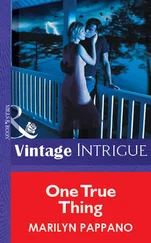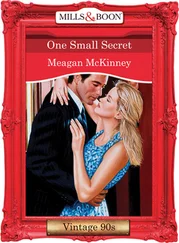1 ...6 7 8 10 11 12 ...15 “Of course.” She pushed her hair out of her eyes. “It’s the main reason he bought this place. Maybe we should turn back. This isn’t a nice day to be here.”
“I don’t mind.” His gaze swept up and down the beach.
“It’s private here. Very private.”
“Yes. It is.”
“No immediate neighbors. I looked at it on a detailed map. To the south, a mangrove swamp. To the north, a mangrove swamp. To the east, a long tract of wild country that your family owns. And to the west, the Gulf.”
She shrugged. He walked so close now that strands of her hair flicked and danced against the shoulder of his shirt. Her gauzy sleeve, damp with spray, blew against his tattooed arm.
She stopped. “The wind’s getting higher. I feel it. We’ll turn back now.”
She walked to his other side, no longer wanting to play tag with the water. She moved out of its reach, letting her skirt fall to her ankles again.
He kept even with her, and he tilted his head toward the cove. “You’d have a tough time getting here by boat, if I read the charts right. It’s shallow with a rough bottom. Almost impossible to land here.”
“That’s right,” she said, quickening her stride toward home.
“So if a sightseer should come—”
Or a snoop— she added mentally.
“—he could only see this spot from a distance. That wall of trees hides the house. All he could see is the top of the house rising over the branches. Or somebody on this beach.”
“Not many people come sight-seeing,” she returned defensively. “People come to the Keys to fish and boat and party. Not to see an aging painter.”
“I don’t know about that. I did.”
He smiled at her. He had an interesting mouth, a full lower lip for so lean a face. The smile was knowing, and there was a dare in it.
She ignored the dare. “My grandfather’s famous in the art world. But to the general public? He’s not a celebrity.”
His maddening smile stayed in place, bracketed by wry lines. “He used to be. People would see his pictures in the glossy magazines, Vanity Fair, Vogue.”
A prickle of apprehension rippled up her spine. “It got old for him. Stale. He found that sort of thing less and less attractive.”
He stopped, and she started to walk on without him. “Wait,” he said.
She stopped, but turned to stare at him in challenge. “What?”
The wind ruffled his hair, the clouded sky reflected in the lenses of his sunglasses. He held up his hand, as if signaling her to stay. “Hold on a minute. Seven years ago, your grandfather threw himself a birthday party. He’d done the same thing for years. The guest list was twenty-one people. If I remember correctly.”
He remembered correctly, all right, curse him. But Emerson gave him a smile of false sweetness. “Yes?”
“But six years ago, no party. None. And none since. He basically withdrew from the world.”
She’d known it was coming and was only surprised he hadn’t zeroed in sooner. She raised her chin. “He decided to focus more on his family and his work. His dearest friend, William Marcuse, died of a heart attack that year. It affected him deeply, especially since my father had a heart condition, too. So the Captain decided to devote himself to what mattered most. Besides that, my grandmother is a retiring woman. The social life was always a strain on her.”
It was a speech she’d rehearsed carefully and delivered just as carefully. She had said exactly the same thing before, and she never changed it. Still, she found her hands clenched into nervous fists and realized she held her back uncomfortably straight.
His gaze seemed amused. “It was very considerate of Marcuse to die when he did. He provided an excuse. It’s very convenient that your grandmother was always reserved. She also provides an excuse. But, Miss Roth, it’s time to stop the lies.”
“What lies?” she asked, feigning indignation.
He took off the sunglasses. His eyes, hard as obsidian, met hers. “No one outside your immediate family admits to talking to your grandfather for six years or seeing him closely. Something’s happened to him. Something bad. Everyone suspects it. It showed in his art then, and it’s showing more now. Much more.”
She clenched her fists harder. She felt her face turn stiff. The salt spray stung her eyes and pricked like tears.
He smiled at her like a man who holds all the winning cards and knows it. “What happened to your grandfather? What have you worked so hard to hide? Everyone knows there’s a secret, Miss Roth. Everyone. What is it?”
FOR A MOMENT, Eli thought his bluntness had caught her unprepared. He was wrong. She turned from him, laughing, and began to walk again.
“You’re trying to be dramatic, Mr. Garner. You talk as if we’re running some terrible conspiracy. You’re in the wrong field. You should write fiction.”
He caught up with her, but she wouldn’t look at him. She faced into the wind, chin high. She had a nice profile, with a nose that came close to being pert, especially when she stuck it up in the air, like now.
He bent close to speak in her ear. “Nobody’s talked to your grandfather for years. Not even by phone.”
She smiled as if to herself. “He never liked the phone much. Ask people who knew him.”
“I have,” Eli said. A strand of her hair blew across his cheekbone, tickling him. “That’s true. He wasn’t crazy about the phone. But he’d use it. Until six years ago, this coming fall. Sometime around September. What happened?”
She turned and looked him straight in the eyes. “Do you really want to know what happened? Time happened. My grandfather went deaf. It came on suddenly. It was irreversible. Hearing aids can’t help him. Deaf men, Mr. Garner, don’t use phones.”
“You’ve dropped hints in New York about that,” he accused. “It’s a nice excuse, but a little too pat. A man doesn’t withdraw from society because he’s deaf.”
She showed him her profile again, as if she found him tiresome to look at. “Deafness can be isolating. My grandfather was a wit. He enjoyed conversation, making jokes. Now he’s uncomfortable in social situations. He loses patience. He feels left out. He doesn’t like people seeing him that way.”
She said it with such passion and conviction that he almost believed her. “Did he consult specialists? If so, whom? Can they confirm your story?”
Her tone became one of weary impatience, as if she were talking to an imbecile. “Of course he did. In Palm Beach. Dr. Joseph Z. Feldman. One of the best. But Feldman died four years ago. Had a brain aneurism playing golf. On the eighth hole. You can check it out.”
Oh, Eli liked that, the little detail about dying on the eighth hole. He imagined it would check out. But he didn’t believe her. He brought his mouth close to her ear again, and again her hair tickled his face like silky feathers.
He said, “Four years is a long time. Doctors make breakthroughs all the time. Hasn’t your grandfather been to a specialist since?”
“No. He refuses. He’s resigned himself to his condition. He’s a stubborn man.”
And you’re a stubborn woman. Damn stubborn.
“He must see some doctor, a man his age. Does he have a personal physician?”
She shot him a disapproving glance. “Yes. But his name is none of your business. He wouldn’t talk to you anyway. There’s a little thing called the Oath of Hippocrates. His dealings with his patients are confidential.”
He wanted to stop, seize her by the shoulders and shake the truth out of her. He also wanted to stop, seize her by the shoulders and kiss her until…until he didn’t know what. He jammed his hands deeply into his pockets.
Читать дальше












